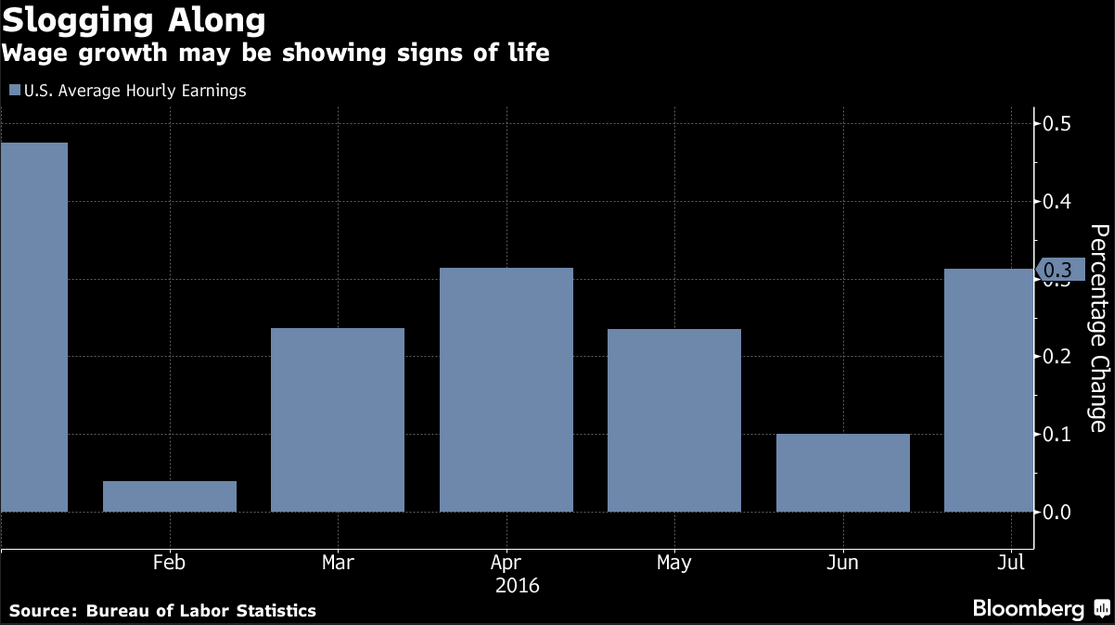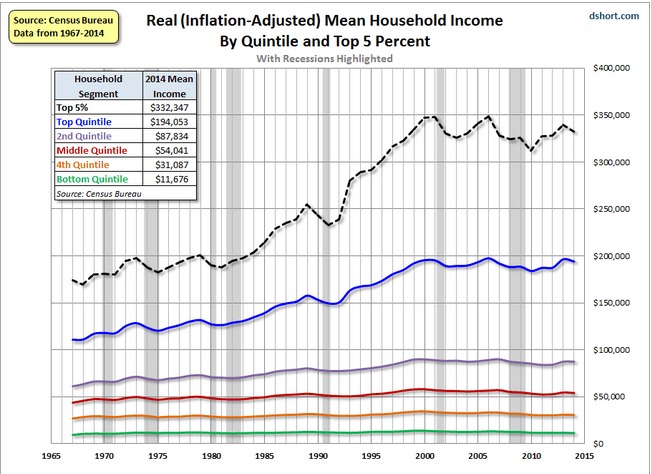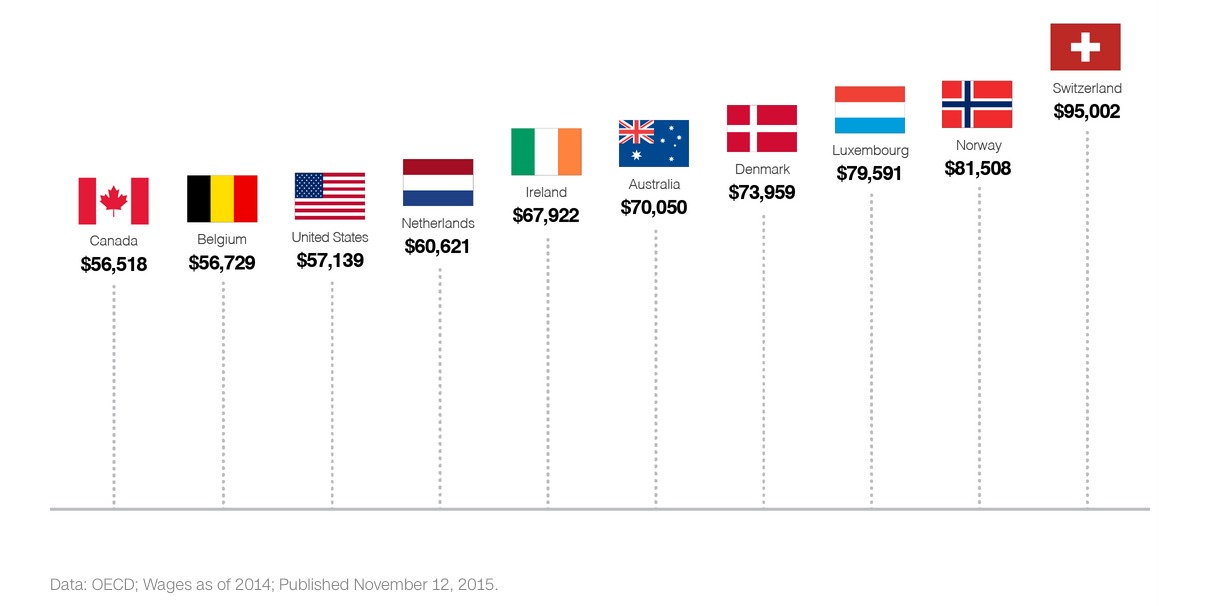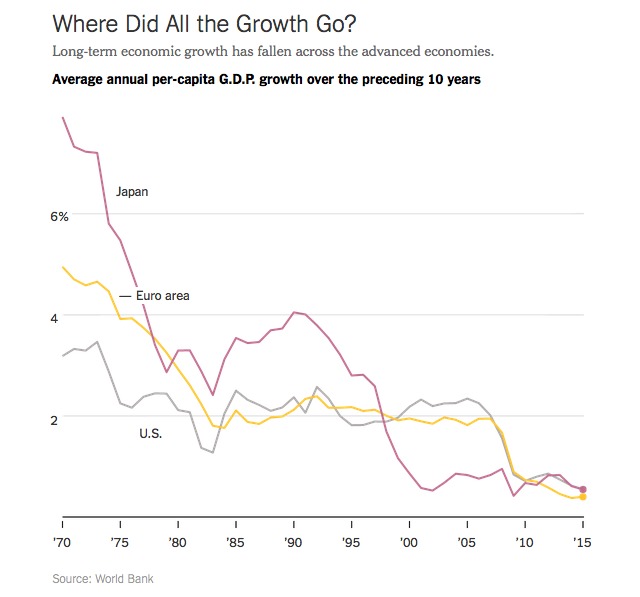Voter anger has been a defining feature of the 2016 election cycle.
And stagnant wages are behind much of the discontent reverberating across the electorate, regardless of whether one is a Republican or Democrat.
It may be the biggest challenge the next US president faces: How best to reignite wage growth and revive the economic prospects of America’s middle class.

Granted, America remains home to the world’s biggest and most innovative economy. It’s also true that wages have inched up in recent months.

And there’s no question that the US economy is generating jobs at steady click. In July, job growth came in at a better-than-expected 255,000 .
Wage Stagnation
Yet, viewed through a longer lens, middle-class households (the middle quintile earning $54,000 annually) haven’t seen their incomes adjusted for inflation improve much since the year 2000.

Global Laggard
Nor do US incomes compare all that well to rich-world peers.
Denmark, Norway and Switzerland have far higher average household incomes than the US, according to OECD Data.

Policy Pivots
The current presidential campaign has brought this issue into sharper focus, as outsiders like Donald Trump and Bernie Sanders struck a chord much to the surprise of political pundits.
As a result, both parties have shifted on some key policies to attract the angry middle-class voter.
In fact, there are a surprising number of pocket-book issues that unite presidential rivals: Hillary Clinton and Trump.
Blurring Lines
Both are in favor of raising the minimum wage, though to varying degrees.
That’s unusual for a GOP standard-bearer, as is Trump’s anti-trade rhetoric.
Clinton used to be far more open to trade deals. No more.
Both want to protect current Social Security and Medicare benefits, big issues with middle class baby boomers living on a tight budget.
In the past, Republicans have pushed to cut benefits or privatize Social Security.
Wage Warfare
This much is clear: Whoever wins the White House will need to come up with creative policies to get the US economy into higher gear and improve wage growth.
It won’t be easy.
Some economists think advanced countries have entered into a period of sluggish growth, unique in the post-war era.

Takeaway
There’s no question that per-capita GDP growth in the US, Eurozone and Japan has been sliding since 1970.
US middle-class families aren’t feeling great about their economic prospects these days.
And that explains a great deal about populist rage in American politics.
The next president will face a dilemma. Come up with policies to nudge wages up or face even angrier voters in 2020.
Photo Credit: Gage Skidmore via Flickr Creative Commons


